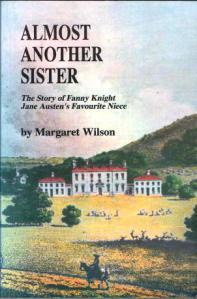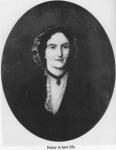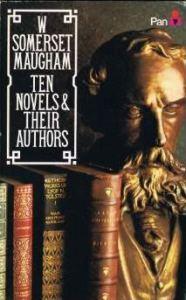While I was over visiting my parents before Christmas, I had my usual riffle through their bookshelves in search of old friends. I came across a book that I had completely forgotten leaving behind. (Or did I lend it to someone?) The book in question was Almost Another Sister: The Story of Fanny Knight, Jane Austen’s Favourite Niece by Margaret Wilson (George Mann Books, 1998) which I see from my note on the flyleaf that I actually bought in the year of publication.

The picture on the cover is Fanny’s childhood home, Godmersham Park
In the previous year were published biographies of Jane Austen by Claire Tomalin and David Nokes so I was well into Austen family history by the time I bought the Fanny Knight book. I can’t remember how I came to hear of it, but I must have ordered it especially as it wasn’t published by a mainstream publisher. The book represents the extensive research of archivist and former teacher Margaret Wilson, who embarked on a study of Fanny Knight while working at the Centre for Kentish Studies (formerly the Archives Office).
Frances (Fanny) Knight (1793-1882) was the daughter of Jane Austen’s elder brother Edward who had the good fortune to gain a benefactor in Thomas Knight, a wealthy cousin. He made Edward heir to his estates on condition that Edward took the family name. By the time that Edward took the name of Knight, his daughter Fanny was a young woman of nineteen. It must have been strange for her to change from Austen to Knight, given that she probably anticipated changing name yet again on marriage. In 1820, when she was twenty-seven, Fanny married Sir Edward Knatchbull a widower with five children. The couple went on to have a further nine children.
Margaret Wilson has delved into family archives, Fanny Knight’s diaries and surviving letters to paint what she calls a ‘cameo’ rather than a ‘full biography’. This is due to the patchy nature of the available sources, such as the brief diary entries and scraps enclosed which the author describes thus: ‘The overall effect is of a multitude of minutiae, like tiny fragments of a jigsaw picture which is too complex ever to complete in full yet offers tantalising glimpses of the finished scene’. Nevertheless, the book is a fascinating account of a life that bridged two centuries and saw many changes as the Regency period gave way to the Victorian age.
As Fanny grew up, she visited and corresponded with Jane and her sister Cassandra. There was a strong connection between the branches of the Austen family, Jane in Hampshire and Fanny’s family in Kent. Apparently, Fanny was particularly close to Aunt Jane, though sadly not many of their letters survive. A quote from one of Jane’s letters to Cassandra gives an idea of how fond Jane was of Fanny:

A Young Fanny Knight
I am greatly pleased with your account of Fanny; I found her in the summer just what you describe, almost another sister – and could not have supposed that a niece would ever have been so much to me. She is quite after one’s own heart; … I always think of her with pleasure.
At this point you are probably wondering where Somerset Maugham fits into the picture. It is simple (and highly serendipitous). I was skimming through the bibliography of Fanny Knight when I came across mention of a collection of essays by Maugham, Ten Novels and their Authors. (1954, Pan Macmillan 1978). This sounded familiar so I had a root around on the shelves (in the living room, not in the landing ones this time) and lo and behold, I unearthed the very book. I had picked it up at a second-hand bookstall in Wexford a couple of years ago and never got around to reading it since.
Maugham has an essay on Jane Austen and Pride and Prejudice, which he feels to be her best book. His collection of essays has its origins in a challenge issued to him (by the editor of a journal called Redbook) to pick out the ten greatest novels in the world. Maugham comments ‘Of course my list was arbitrary. I could have made one of ten other novels, just as good in their different ways as those I chose, and give just as sound reasons for selecting them’. But he goes on to speculate that if a hundred readers produced a similar list, selecting perhaps two or three hundred novels, then ‘I think that in all the lists most of those I have chosen would find a place’.

Fanny Knight (Lady Knatchbull)
Margaret Wilson makes use of Maugham for his discussion of a particular letter that Fanny Knight wrote to one of her sisters many years after Jane Austen’s death. If you are a clued-up Austen fan, you will know to what letter I refer, as Margaret Wilson says that ‘Fanny has acquired a poor reputation’ because of the much-debated letter. In this much quoted letter, Fanny is clearly responding to a query or alluding to a previous conversation about her late aunt when, in 1869 she writes,
Yes my love it is very true that Aunt Jane from various circumstances was not so refined as she ought to have been from her talent, & if she had lived 50 years later she would have been in many respects more suitable to our more refined tastes. They were not rich, & the people around with whom they chiefly mixed, were not at all high bred, or in short anything more than mediocre & they of course though superior in mental powers & cultivation were on the same level so far as refinement goes – …
Both Maugham and Wilson quote the offending passages and Wilson also includes the remainder of the letter in an appendix. The discussions about what Fanny did or did not mean by her remarks are interesting. It was all new to me as I had never heard about these criticisms of Aunt Jane. Key to understanding the letter seems to be the changing social times and also Fanny’s social elevation as the result of her marriage. I was amused by Maugham’s reflection that, ‘It is regrettable, but it is a fact, that children do not look upon their parents, or their relations belonging to another generation, with the same degree of affection as their parents, or relations, look upon them. Parents and relations are very unwise to expect it’. In other words he is, perhaps wisely, not particularly surprised that Fanny should be rather mean about the aunt who cared for her so much.

A bargain in 1978 at 90p!
I would love to have Jane Austen’s thoughts on the offending letter. I am sure that would be worth reading! Since that is an impossibility I will have to make do with reading more of Maugham’s literary criticism. I feel sure that he would be a good subject for a further blog post as he has plenty to say on the art of fiction. Perhaps my new TBR Challenge should explore all of the lit crit lurking around on The Landing!
Any thoughts?

